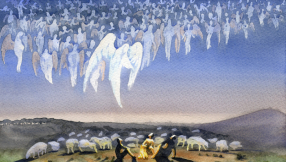
It is estimated that around 100,000 Americans went on short-term cross-cultural missions each year in the 1980s. Today, that figure is estimated to be as much as four million, demonstrating the significant and growing popularity among Christians over the last 40 years. These missions have captured the imagination of millions of Christians keen to evangelise overseas and have become both a buzzword and a billion-dollar industry.
There are some benefits to short-term cross-cultural missions. They can convict and encourage Christians of their calling to missionary work, they can help raise supporters and fuel a passion for God in a more hands-on way.
But the reality is, more often than not, they miss the point of mission work: they benefit the missionary, not the nations they are supposed to be reaching.
Successful missions that result in indigenous peoples understanding, accepting, and becoming long-term followers of Christ – the foundational purpose of mission – face enough obstacles as it is. War, difficult geography, persecution, and historical complexity are part and parcel of a lot of missionary work. Why burden it with cultural and lingual illiteracy, accusations of white saviourism, cross-cultural dependency, and financial inefficiency as well?
If we're going to spend several thousand pounds a head on spreading the gospel, why not spend it on something that will have a more lasting impact? Why not spend it on raising up indigenous Christian leaders? I have a Bosnian friend who, after completing his training at one of our local Langham Partnership preaching clubs – a UK charity which deepens Christians' faith by equipping, training and resourcing indigenous leaders worldwide – helped set up more than 10 preaching clubs to train local pastors. He knew the situation, the culture, the history, and the geography of the country, and was far better placed to impact Bosnia for Christ than any foreign missionary could ever hope to be.
A new framework for mission is needed. The countries that are most open to the gospel message are often suffering from the most poverty and pressure, and yet still have great leadership potential in their population – what we at Langham call the 3Ps. These can be closely interlinked. Despite the immense pressure the Russians have applied over the last 18 months in Ukraine, and the poverty they have created along the way, the inherent resilience of the Ukrainians was already creating a generation of strong leaders able to give their people the kind of leadership that they deserve.
Countries struggling under immense poverty and pressure will usually invite Langham in to equip, train and provide resources for their potential leaders. These current and future pastors aren't sent or even found by Langham. We trust that God will place them before us – and He does, at the right time and in the right place.
Once theologically trained, the impact these local leaders have on their nations is astonishing. In Lebanon, one of our scholars' churches swelled from 300 to 3,000 members during the Syrian war as he took in and cared for refugees.
After achieving her PhD, another of our scholars in Ethiopia trained pastors and leaders to speak out against female genital mutilation. She has helped convince several of the country's politicians to abandon their support for the practice, helping to put the nation on the pathway to change.
If we are serious about using missions to develop disciples around the world and impact communities in the long-term then we must prioritise approaches that benefit the reached more than the 'reachers'. Supporting charities and organisations that raise up and theologically train local leaders who disciple their congregations and communities over decades will enable us to achieve far more for the Kingdom of God than by visiting these leaders ourselves.
Simon Foulds is Supporter Development Manager for Langham Partnership. If you're interested in finding more about the work that Langham Partnership does, visit: https://uk.langham.org/bookmark/













